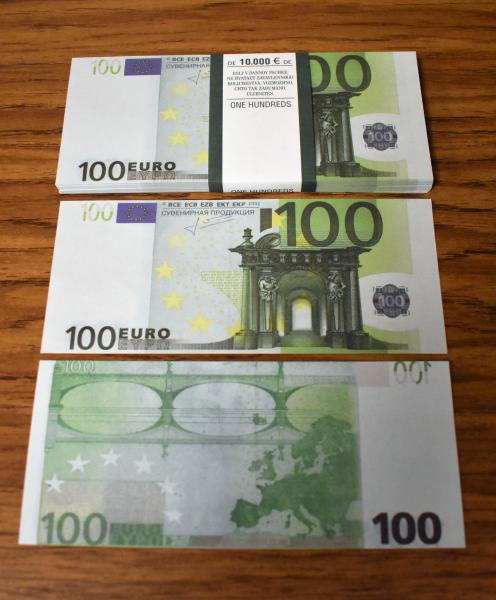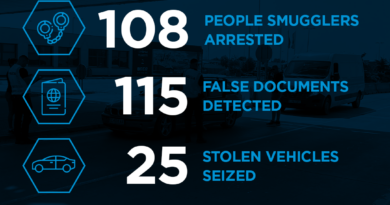US CBP Officers Seize More than $6.5 Million in Fake Currency from Russia
U.S. Customs and Border Protection officers in Philadelphia seized more than $6.5 million in counterfeit U.S. currency on Tuesday that arrived in international air cargo from Russia. The currency was destined to an address near Chicago.
This currency seizure follows a September 7 seizure by Philadelphia CBP officers of nearly $100,000 in counterfeit euros and dollars.
In the most recent incident, CBP officers seized a combined $6,511,294 in counterfeit U.S. currency that arrived in five parcels.
The latest parcel, which CBP inspected on Tuesday, contained 3,011,000 euros in denominations of 10, 50, 100 and 500 euro notes. The euros converted to approximately $3,485,794 in U.S. dollars. Officers also discovered $20,500 in fake $1 bills in one parcel on September 14, then $2,000,000 in fake $100 bills and $15,000 in fake $1 bills in separate parcels on September 16, and then $990,000 in fake $100 bills on September 17.
CBP contacted the U.S. Secret Service who confirmed the currency as counterfeit. The currency will be turned over to Secret Service agents.

in fake 10, 50, 100 and 200 euro notes.
As in the September 7 seizure, these latest parcels were manifested as “Play Money for Monopoly.” The notes were marked as prop money — which federal law considers as counterfeit currency — but the notes too closely resembled authentic U.S. currency. The United States places legal restrictions on the reproduction of banknote images and those who attempt to pass these fictitious notes as legal tender face severe consequences under U.S. law.
“This is an outstanding interception by Customs and Border Protection officers of an alarming amount of restricted currency that may be altered to look authentic and potentially used to hurt our nation’s most vulnerable citizens,” said Edward Moriarty, CBP’s Acting Area Port Director in Philadelphia. “CBP remains committed to working with our law enforcement partners in our collective efforts to interrupt financial scams and to protect our nation’s economic security.”
According to the U.S. Secret Service, counterfeiting currency is a lucrative business and is often used to finance illegal activities, including financial fraud, narcotics smuggling, terrorism, and attacks against our nation’s financial systems.
Consumers and retailers can protect themselves from inadvertently receiving counterfeit currency by learning to quickly identify the security features of authentic Federal Reserve notes.




